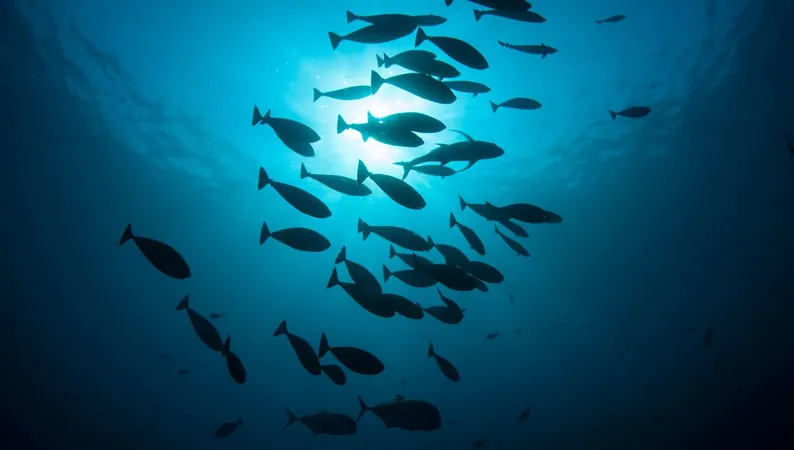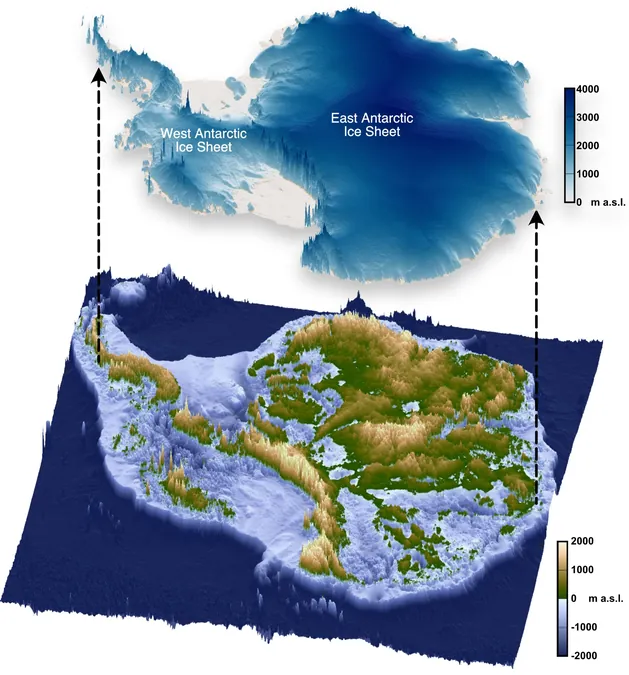
The Alarming Darkening of Earth's Oceans: A Call to Action
2025-06-02
Author: Wei Ling
The Photic Zone: Earth's Marine Heartbeat
Beneath the shimmering surface of our oceans lies the photic zone—a magical realm where sunlight fuels the vibrant marine ecosystem. Encompassing about 90% of marine creatures, this sunlit zone is pivotal for countless life forms and the intricate web of ecological interactions that sustain the health of our seas.
A Disturbing Discovery
Recent research from the University of Plymouth reveals a troubling trend: the once-bright photic zone is fading into darkness. An analysis spanning two decades, using cutting-edge satellite data, shows that nearly 21% of the global sea surface has dimmed significantly from 2003 to 2022.
What’s Causing the Darkness?
The findings indicate that coastal waters are clouded by increased runoff of nutrients and sediments, largely due to agricultural practices and heavy rainfall. In the vast open ocean, shifting algal bloom patterns and rising sea temperatures are the culprits contributing to this alarming phenomenon.
Shedding Light on the Abyss
The reduction in light penetration has serious implications. The photic zone—the sunlit upper layer where photosynthesis thrives—is shrinking in many areas. Shockingly, in some parts of the ocean, the depth of this vital zone has decreased by more than 50 meters (164 feet), with 2.6% experiencing a staggering reduction of over 100 meters (328 feet).
Some Bright Spots Amongst the Darkness
Interestingly, around 10% of the ocean's surface has seen a light increase over the past 20 years. However, the overarching trend of darkening remains a critical concern. With the foundation of the marine food chain dependent on sunlight for photosynthesis, the diminishing light poses risks to marine life and our broader ecosystem.
Deep-Sea Life in Jeopardy
Even deep-sea ecosystems, which rely on chemosynthesis, may face challenges. These obscure habitats depend on organic material that drifts down from the sunlit waters above. As surface waters become less productive, the crucial nutrients flowing into these dark depths might dwindle.
A Planetary Alarm Bell
Dr. Thomas Davies, a leading researcher on marine conservation, emphasizes the stakes: "Less light means less life. We depend on oceans for our air, food, and our fight against climate change. Our findings highlight a genuine cause for concern that cannot be ignored." This revelation serves as a wake-up call to safeguard the delicate balance of our oceans, ensuring their health and sustainability for generations to come.





 Brasil (PT)
Brasil (PT)
 Canada (EN)
Canada (EN)
 Chile (ES)
Chile (ES)
 Česko (CS)
Česko (CS)
 대한민국 (KO)
대한민국 (KO)
 España (ES)
España (ES)
 France (FR)
France (FR)
 Hong Kong (EN)
Hong Kong (EN)
 Italia (IT)
Italia (IT)
 日本 (JA)
日本 (JA)
 Magyarország (HU)
Magyarország (HU)
 Norge (NO)
Norge (NO)
 Polska (PL)
Polska (PL)
 Schweiz (DE)
Schweiz (DE)
 Singapore (EN)
Singapore (EN)
 Sverige (SV)
Sverige (SV)
 Suomi (FI)
Suomi (FI)
 Türkiye (TR)
Türkiye (TR)
 الإمارات العربية المتحدة (AR)
الإمارات العربية المتحدة (AR)